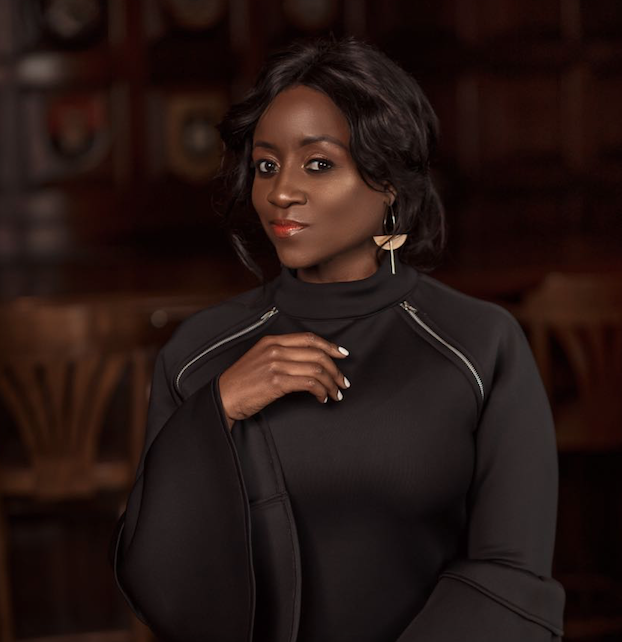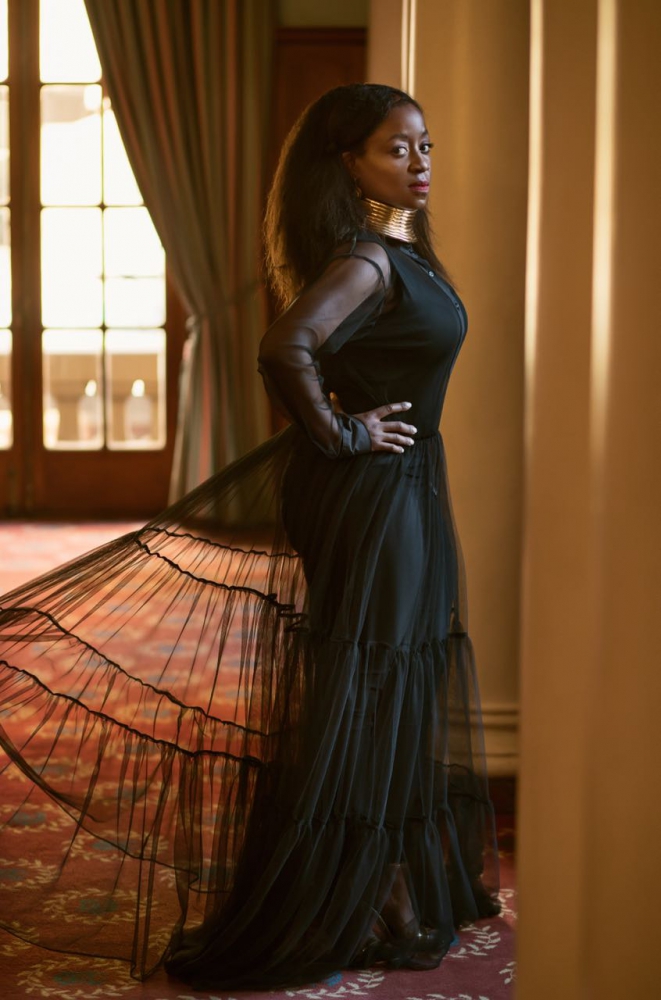
Radio and TV presenter and writer, Lee Kasumba, is a Cuban-born Ugandan that calls the whole of Africa home. From starting out on radio while studying a full-time BA Dramatics Arts degree, Lee’s career path has taken her all over Africa.
Tell us a little bit about yourself?
“My path has been slightly different to say the least. While at YFM, I got the honour of being the editor of the award winning YMAG. I was the longest standing editor, the youngest, and the only female editor. Other career highlights include being the head of Channel O Africa - where my focus areas were West, East and Central African music markets. Here I ended up doing work on projects within Nollywood too and just overall was able to work within African Music, Pop Culture and the Film Industry.
Fast forward to today, I do correspondence work with the Primedia Group (702/Cape Talk). There is my podcast Africa State of Mind which is currently the pride of my life. To get to interview such incredible people that inspire me and others, and are at the forefront of leading Africa across sectors is so humbling. I also got to do Africa Connected with Standard Bank, which was something I have always wanted to do. So that was awesome - again traveling the continent and telling African stories – that is truly my heart.
I also have a production company that produces content for international companies like E! Entertainment and for Mnet West Africa too. I guess I see myself as a proponent for African Culture!”
In 2018, you travelled across Africa to explore the continent’s opportunities and potential for growth?
“That was for Standard Africa Connected 2.0 with 702 and Cape Talk. It was an awesome assignment to be on. The idea was to go to different countries within the continent and see how business is done in those countries/markets. We got to see how tech and innovation was impacting young people in the continent. We came across some great green projects too, which was awesome to see.
Then of course, you can't talk Africa and doing business in Africa without understanding or getting a taste of the cultural nuances too. The purpose was to share these stories, highlight opportunities, and showcase African solutions to African challenges. And of course, to hopefully pique the interest of South Africans to go see what the rest of the continent has to offer.”
What is your favourite thing about travelling through Africa?
“My favourite part about travelling the continent of Africa is that everywhere feels like home. I also am always impressed by how much changes; literally the changes within a few months to a year if you repeat countries is so impressive. As fast as the changes are – the people the culture and the spirit remains the same. The best of both worlds.”
Are you a coffee drinker? What’s your coffee of choice?
“I am more than an avid coffee drinker to put it mildly. My coffee of choice, which I of course don't get to drink much of, is Ethiopian Coffee with Tena Adam. Something about the fresh mix of coffee and the plant; I have never tasted anything like it honestly. It’s like Ethiopia's best kept secret and it’s how they used to drink it. It’s not done as frequently in Ethiopia anymore, but that has got to be my favourite preferred cup of coffee. Yum!”
As part of your travels, you visited Côte d’Ivoire. What was your impression of the country?
“Cote D'Ivoire was truly a pleasant surprise, for many reasons. Firstly, I think they have one of the most efficient airports that I have been too. The airport is a foyer to a country. It’s also extremely orderly, so even then traffic jams somehow feel like all is in order. It’s a melting pot – I loved bumping into people from all around the world. It has a charm to it – in a way that I haven’t experienced; so yes, you find a French or Parisian influence, but it’s with a very heavy and gorgeous African texture. The urban landscapes, textured with some historical buildings that tell the story of Cote D'Ivoire. I feel like it’s a country that everyone needs to visit – you won’t be disappointed.”
You’ve mentioned expecting to have amazing coffee everywhere you went in Côte d’Ivoire, but this wasn’t the case?
“This wasn't the case because there weren’t all that many coffee shops. I also didn't see a lot of Ivorian coffee for sale in the stores or even in the hotels. Unfortunately, there was a lot of instant coffee! Also, when I did finally get to taste Ivorian coffee, it had a really bitter taste to it. I also found that most of the beans were sent out the country and then brought back in once processed and packaged. So, the cost factor probably plays a huge role in this too. I feel as though it hasn’t been tapped into enough yet and there is a huge gap/opportunity for the Ivorians.”
If Côte d’Ivoire is known for its coffee, why don’t Côte d'Ivoire people have a culture for drinking good coffee?
“No, there definitely isn't a huge coffee culture. My producer on ground who loves coffee too got her coffee from Rwanda. So that says a lot. But the people just don’t seem to enjoy coffee; from my experience, coffee just didn’t seem to be part of the local palette. I think I was expecting it to be like Ethiopia where people love their coffee regardless of age, class and so forth. This wasn't the case in Cote D'Ivoire.”
Did you get a chance to visit one of Abidjan’s specialist coffee shops?
“Yes. I visited Couleur Cafe which was open and is owned by a 25-year old young lady, Fabiienne Dervain. The ambience was great and also the clientele was very hip; almost felt like what you would get at say a Starbucks in LA or NYC – that sort of clientele. I was extremely impressed all round.”
What could someone expect to pay for a good coffee in Abidjan?
“I had a cappuccino and it set me back like R52 or more if I remember correctly. And it wasn’t a huge cup; it was pretty small!”
Do you think the specialist coffee culture will grow and become more popular in Côte d’Ivoire?
“Yes I think it can, I just feel we need to remember that as a nation, Cote D'Ivoire only really started to stablise in 2012 – so the way that they have grown is incredible. I think also from my conversation with Fabiienne that as more Ivorians move back home, this culture will grow too. I do think once coffee is produced in Cote D'Ivoire from start to finish and it starts to have a stronger impact on the economy, that will change too.”
During your travels, did any country's coffee culture stand out as particularly unique?
“Definitely Ethiopia. I think just the art of having people prepare it in their homes is so yummy. And the various ways that it can be taken and the different types of coffees. I am probably under-selling, but Ethiopia without a doubt!”
Which country in Africa would you recommend for people to visit?
“I honestly can't answer this – I love everywhere in the continent. I would just say if the opportunity comes up, take it – you won't be sorry.”
Any last thoughts about your travels through Africa?
“Just that everything, every part of Africa, is some kind of wonderful. Take the plunge!
Follow Lee Kasumba on Instagram to keep up with her travels, stories and podcast!
